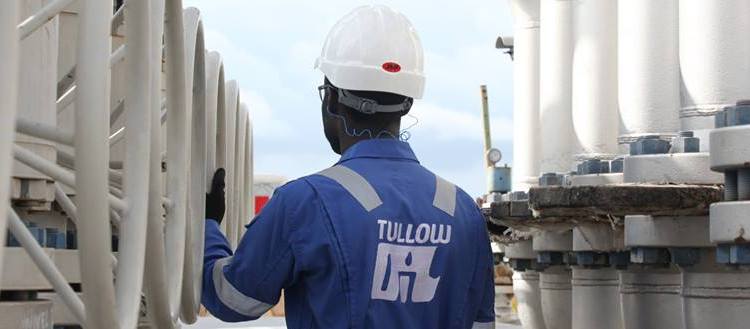(Bloomberg) – Tullow Oil Plc sank to a record low, with trading of the shares briefly halted in London, after the company said it’s contemplating alternatives to refinance its looming debt maturities.
The stock plunged as much as 35% to 5.55 pence, the lowest since trading began in 1989, over fears that a potential debt deal could hurt shareholders. Tullow’s bonds maturing next May dropped 7 cents to around 79 cents on the dollar, according to data complied by Bloomberg.
Tullow became one of the UK’s hottest independent oil explorers after making several major African discoveries in the late 2000s. But it took on huge debts to develop them, and in recent years struggled to bring Kenyan fields onstream. This year it agreed to sell the Kenyan deposits and offloaded assets in Gabon.
In a trading update on Friday, the company said uncertainty surrounding its performance and the market led it to push forward with “alternative options with certain of its creditors, including an amend and extend exercise and other forms of liability management transactions.” It also raised its year-end net debt forecast to $1.2 billion, from $1.1 billion.
Liability management exercises are maneuvers to rework debt structures outside of court.
“We think a debt for equity swap may be required to keep the company going, which would probably wipe out existing equity holders,” Ashley Kelty, an analyst at Panmure Liberum, said in a note to clients.
While Tullow had previously spoken about bringing a strategic investor in, which could have helped with the looming maturity wall, the main focus is now on sorting out the debt first, according to people familiar with the matter, who asked not to be named discussing non-public information.
Bloomberg previously reported that creditors had organized with adviser Houlihan Lokey Inc. and Weil Gotshal & Manges. Large holders include Astaris Capital Management, Caius Capital, Melqart Asset Management and Tresidor Investment Management.
A financial solution is to be built on the basis of Tullow’s budget for next year, the people said.
“Production in 2026 will be dependent on a number of factors, including production from new wells helping to offset the natural decline from existing well stock,” Tullow said in the trading update.

